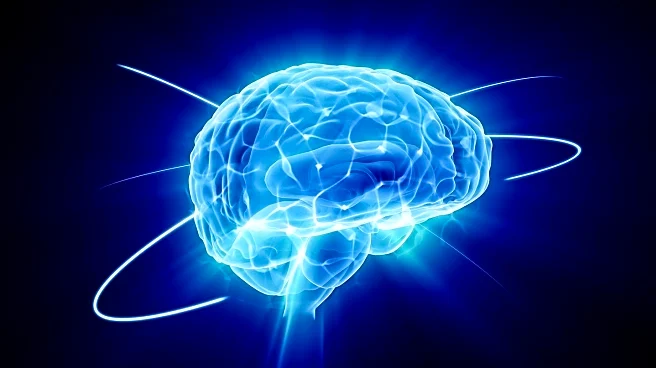What's Happening?
Recent research has shed light on the complex biological mechanisms that make weight loss challenging, emphasizing the brain's role in defending body weight. Historically, human bodies evolved to protect energy reserves, a trait beneficial for survival
in environments with fluctuating food availability. However, in modern times, these same mechanisms can hinder weight loss efforts. When weight is lost, the body reacts as if it were a threat to survival, increasing hunger hormones and food cravings while reducing energy expenditure. This biological response is rooted in the brain's ability to 'remember' previous higher weights, treating them as the new normal. Consequently, many individuals experience weight regain after dieting, not due to a lack of discipline, but because of these ingrained biological defenses.
Why It's Important?
Understanding the brain's role in weight regulation is crucial for developing effective weight loss strategies and treatments. This research highlights the need for a societal approach to tackle obesity, which is not merely an individual problem. Advances in neuroscience and pharmacology, such as weight-loss medications that mimic gut hormones, offer hope for overcoming these biological barriers. However, these treatments are not universally effective, and side effects can limit their use. The findings underscore the importance of sustainable lifestyle changes, such as regular physical activity and balanced nutrition, which can improve health even if weight loss is minimal. Additionally, early-life interventions, including healthier school meals and reduced junk food marketing, could shape future generations' weight regulation systems.
What's Next?
Future therapies may focus on modulating the brain's signals that drive the body back to its original weight, potentially offering long-term solutions beyond current treatment periods. Researchers are also exploring preventative measures that could reshape societal norms around diet and exercise, such as designing neighborhoods that prioritize walking and cycling. Attention to key early-life stages, from pregnancy to age seven, could influence how the brain controls appetite and fat storage, setting a foundation for healthier weight regulation throughout life. These strategies aim to shift the landscape for future generations, reducing the prevalence of obesity and its associated health risks.
Beyond the Headlines
The research highlights ethical considerations in addressing obesity, emphasizing that it is not a personal failure but a biological condition influenced by genetics and environment. This perspective challenges societal stigmas around weight and promotes a more compassionate approach to treatment and prevention. Long-term shifts in public policy and healthcare practices could emerge from these findings, fostering environments that support healthy lifestyles and reduce obesity rates. The integration of neuroscience and pharmacology in developing new treatments may revolutionize how obesity is managed, offering hope for individuals struggling with weight loss.

















